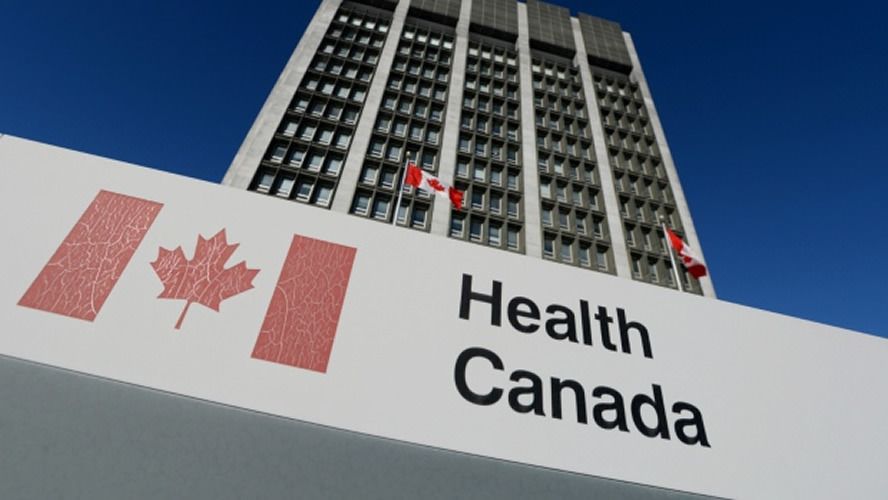The FDA signs off on a cannabis-derived drug to treat epilepsy, an Arizona court says marijuana extracts are illegal in the state, and a bill that would deschedule MJ is introduced in Congress.
Here’s a closer look at some notable developments in the cannabis industry over the past week.
CBD’s ‘immutable support’
Marijuana advocates have been trying unsuccessfully since 1972 to refute federal drug classifications that cannabis has “no currently accepted medical use.”
So when the U.S. Food and Drug Administration approved a cannabis-derived drug, Epidiolex, the entire MJ industry applauded – and braced for changes as the federal government prepares to reclassify CBD, or cannabidiol, a molecule in cannabis flowers.
“That is the foundation upon which the rest of the marijuana and hemp industries will be based.”
Expect to see other pharmaceutical companies pursue cannabis therapies for FDA approval.
“There is a massive opportunity in applying sound medical standards and protocols to the medical cannabis industry,” said Joe Reiz, director of clinical research for Toronto-based Resolve Digital Health, which makes cannabis inhalers.
Others, however, caution that the pipeline to get FDA approval and to market – a process that usually takes more than a decade – means that business opportunities for pharmaceutical cannabis will likely be limited to firms with enough capital to finance years of expensive trials with no guarantee that a profitable product will result.
“I don’t see a flood of new businesses going this route,” said Jonathan Miller, lawyer for the U.S. Hemp Roundtable, a Kentucky-based hemp advocacy and lobbying group.
Even the FDA threw some cold water on industry enthusiasm, adding an unusual memo along with its approval letter to warn marijuana businesses not to interpret the decision as a green light for other uses.
“This is not an approval of marijuana or all of its components,” FDA Commissioner Dr. Scott Gottlieb wrote.
Extract ban
An Arizona Court of Appeals ruling that marijuana extracts are illegal could have broad ramifications for the state’s fast-growing medical marijuana market.
The ruling relies heavily on a 1978 Arizona Supreme Court decision that says “hashish” is the “resin extracted” from marijuana “criminalized as cannabis, a narcotic drug, and distinct from marijuana.”
Interpreted literally, the court’s decision means cannabis extracts and infused products are illegal, Gary Smith, president of the Arizona Cannabis Bar Association told Marijuana Business Daily.
“What this ultimately means is that any extracted product from marijuana – at least for the time being, according to this ruling – is not within the protection of the (2010 voter-approved Arizona Medical Marijuana Act),” Smith said.
The worst-case scenario: The ruling allows law enforcement agencies, county attorneys and the state government to enforce a ban on extracts and infused products, Smith noted.
That would mean those products – which make up about 40% of what’s for sale in the market, according to Mikel Weisser, executive director of Arizona’s chapter of NORML – would have to be pulled from shelves.
That’s possible but not probable, Smith said, who added that businesses could file injunctions to request a stay of the ruling to avoid enforcement.
Here are key points to keep in mind:
- The ruling cannot be appealed by cannabis businesses. That’s because it would have to be appealed to the state Supreme Court by Rodney Jones, who was arrested and convicted for possession of .05 ounces of “cannabis” in 2013. The Court of Appeals ruling upholds the conviction.
- The Cannabis Bar Association reached out to Jones’ attorney and offered to assist with an appeal, Smith said. The association hasn’t heard back but is ready to fight the court’s ruling.
No appetite
Senate Minority Leader Chuck Schumer became the latest to unveil comprehensive marijuana reform legislation, a bill that would effectively allow states to continue to determine their own MJ policies.
The New York Democrat’s legislation follows closely on the heels of a states’ rights bill co-sponsored by Sens. Elizabeth Warren, a Massachusetts Democrat, and Cory Gardner, a Colorado Republican.
But political pundits still don’t think it’s likely substantial federal marijuana reform will occur before the November elections.
John Hudak, a senior fellow at the Brookings Institution, a Washington DC think tank, said in April that he didn’t think Congress had the “appetite” to do anything before midterms, and in an email to Marijuana Business Daily this week he said his view hasn’t changed.
Hudak wrote that Sen. Majority Leader Mitch McConnell, a Republican from Kentucky, “surely won’t give Schumer a win on an issue with supermajority support nationally in advance of the midterms.”
“Supermajority” references the fact that more than two-thirds of Americans now support legalizing marijuana, according to a recent poll.
Morgan Fox, media relations director for the National Cannabis Industry Association (NCIA), said the trade group also doesn’t see major marijuana reform occurring before the midterms.
Kristen Nichols can be reached at kristenn@hempindustrydaily.com
Joey Peña can be reached at joeyp@mjbizdaily.com
Jeff Smith can be reached at jeffs@mjbizdaily.com




